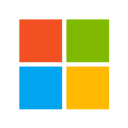Top SME Server Alternatives for Your Business Needs
SME Server has long been a go-to distribution for small and medium enterprises, praised for its preconfigured functionality and robust set of features. Published under the GPL license, it offers a comprehensive solution for network services. However, as business needs evolve and new technologies emerge, many organizations are seeking alternative solutions that might better fit their specific requirements for scalability, features, or cost. This article explores the best SME Server alternative options available today.
Top SME Server Alternatives
Whether you're looking for open-source flexibility, Windows integration, or specialized features, these alternatives offer compelling reasons to consider them over SME Server.

Ubuntu Server
Ubuntu Server is a leading platform for scale-out computing, making it an excellent SME Server alternative, especially for those prioritizing open-source and Linux environments. It's a free and open-source Linux-based solution with strong ARM support, ideal for deploying OpenStack clouds or Hadoop clusters.

NethServer
NethServer stands out as a robust SME Server alternative, particularly for small offices and medium enterprises. This free, open-source, Linux-based, and self-hosted solution built on CentOS offers a wide array of features including Gateway, Email Server, OpenVPN, Virtualization, VPN, Web filter, and Web Server capabilities, making it a comprehensive all-in-one choice.

Zentyal
Zentyal is an excellent SME Server alternative for businesses heavily invested in Microsoft Active Directory. It provides a native Microsoft Active Directory® implementation on Linux, incorporating essential network services like File sharing, Gateway, Email Server, and Remote desktop, all within a free and open-source Linux platform.

Univention Corporate Server
Univention Corporate Server (UCS) is an open, innovative platform to efficiently operate and manage server applications and complete IT infrastructures. As a free and open-source SME Server alternative, it supports Linux, Windows, and Mac OS X, offering features like Active Directory integration, DHCP Server, DNS management, Single Sign-On, and Docker support, making it highly versatile.

Windows Server 2019
For organizations already in the Microsoft ecosystem, Windows Server 2019 serves as a powerful commercial SME Server alternative. Built on the strong foundation of Windows Server 2016, it continues to be a popular choice for its robust Windows platform capabilities.

Artica
Artica provides a comprehensive web-based administration interface for email/messaging, HTTP proxy, file server, and VPN, making it a viable free and open-source SME Server alternative. Leveraging Postfix, Squid, and Samba, it offers robust features for Messaging, SMTP, and Web filtering on a Linux platform.

Windows Server Essentials
Windows Server Essentials, formerly Windows Small Business Server, is a flexible, affordable, and easy-to-use commercial server solution designed for small businesses. It's a strong Windows-based SME Server alternative focusing on Server Management and Server Monitoring for those preferring a commercial, integrated solution.

linuxmuster.net
linuxmuster.net is a comprehensive complete solution for the operation of school IT infrastructure. Developed by teachers and service providers, this free, open-source, and self-hosted solution supports Windows and Linux environments, making it a unique SME Server alternative for educational institutions or similar environments requiring specialized IT management.
Ultimately, the best SME Server alternative depends on your specific needs, existing infrastructure, and budget. Whether you lean towards open-source flexibility, commercial support, or a specific set of features, the alternatives listed above provide a strong starting point for finding the perfect server solution for your small or medium enterprise.